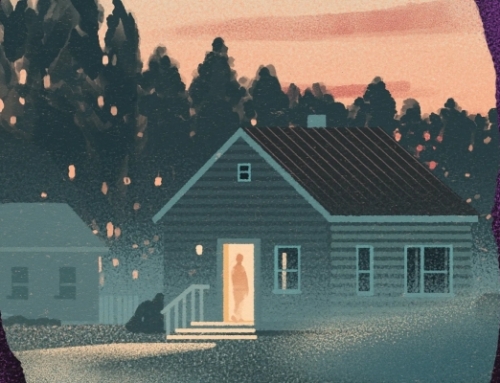"Affection" by Donald Barthelme Originally published in the November 7, 1983 issue of The New Yorker.
In my last Clock at the Biltmore, KFC suggested I look at something by Donald Barthelme. Okay, I though, I’ve heard of Barthelme but never read him. Where should I start? Well, pick up some issue between the early 1960s and late 1980s and you’re almost certain to find some of his fiction. He first published in The New Yorker on March 2, 1963. The last piece published during his life (he died on July 23, 1989) was on March 6, 1989. Then there was one posthumous publication on June 27, 1994. But in that span he published some 110 pieces of short fiction. I took a stab in the dark and ended up reading “Affection,” published on November 7, 1983.
Despite the quantity of stories, it is possible to get through them all relatively quickly. Most are incredibly short, perhaps less than a page. Barthelme is known for these short short fictions. For me, the length of these pieces is important because Barthelme is also known as a postmodernist writer. I can stand much postmodern writing, if I’m in the mood — but I can actually enjoy it when it comes in small doses. Somehow it doesn’t feel as gimmicky at that point.
Well, let me introduce the story in the same way I was introduced to it.
How do you want to cook this fish? How do you want to cook this fish? Harris asked.
What?
Claire heard: How do you want to cook this fish?
Breaded, she said.
What?
Fine!
Obviously this isn’t going to be a positive look at affection. Claire and Harris are married, at least, they are married in this first section — some might say fragment. While this discussion on fish is going on, Claire is thinking, “We have not slept together for three hundred nights.” Claire calls her mother who says, “They go through phases. As they get older. They have less tolerance for monotony.” Claire thinks, “I’m monotony?”
The next section (fragment) is short. I’ll just be liberal in my quoting here:
Sarah decided that she and Harris should not sleep together any longer.
Harris said, What about hugging?
What?
Hugging.
Sarah said that she would have a ruling on hugging in a few days and that he should stand by for further information. She pulled the black lace mantilla down to veil her face as they left the empty church.
I have done the right thing the right thing. I am right.
It is not possible (I don’t think) to follow this story from beginning to end. At first it seems obvious: Harris is having an affair with Sarah. Claire is being neglected, and their marriage appears to have already failed. In the next two fragments, Claire visits an old pianist and Harris visits a clairvoyant. Then, suddenly, there’s this:
Sarah calls Harris from a clinic in Detroit and floors him with the news of her “miscarriage.” Saddened by the loss of the baby, he’s nevertheless elated to be free of his “obligations.” But when Harris rushes to declare his love for Claire, he’s crushed to learn that she is married to Phillip. Hoping against hope that Harris will stay with her, Sarah returns. Harris is hung over from drinking too much the night before when Sarah demands to know if he wants her. Unable to decide at first, he yields to Sarah’s feigned helplessness and tells her to stay.
And this is just the beginning of a long list of non sequiturs. Strangely, somehow, I have no idea how, the feelings come together in the end and when we look back we can see the whole of the landscape we’ve just traversed. Its elements don’t fit together when one placed next to another. It is not explicit, but there is so much manipulation and spite going on these few pages with these three miserable characters (four if you count the clairvoyant; the pianist actually seems quite content — or perhaps he just doesn’t expect much now that he’s an old pianist). It’s a mess of feeling and a complete mess of narrative — but it works.
It all comes together (that’s not to say the non sequiturs make sense) in a final ambiguous scene. Well, the scene is not actually that ambiguous. It has happiness on its surface, but underneath is a lot of pain.
This story packed a punch. Though it was not my favorite by any means, it amply returned my investment. Since his pieces are so short, I’ll definitely be revisiting him again soon! Thanks KFC for recommending Barthelme to me.









Thank you for this Trevor and KFC. I had never heard of this writer but I find his writing very interesting……
i ve heard of him like you trevor but never read him ,know he wrote the flash fiction,this seems a good place to start
Thanks for this, Trevor — it tends to confirm my memories of Barthelme. I think I will follow the path of dropping in on some of the New Yorker stories. I suspect an entire volume of these would get rather confusing. As this story illustrates, reading a Barthelme story is not a time-consuming experience — but there is a lot of after-thought required.